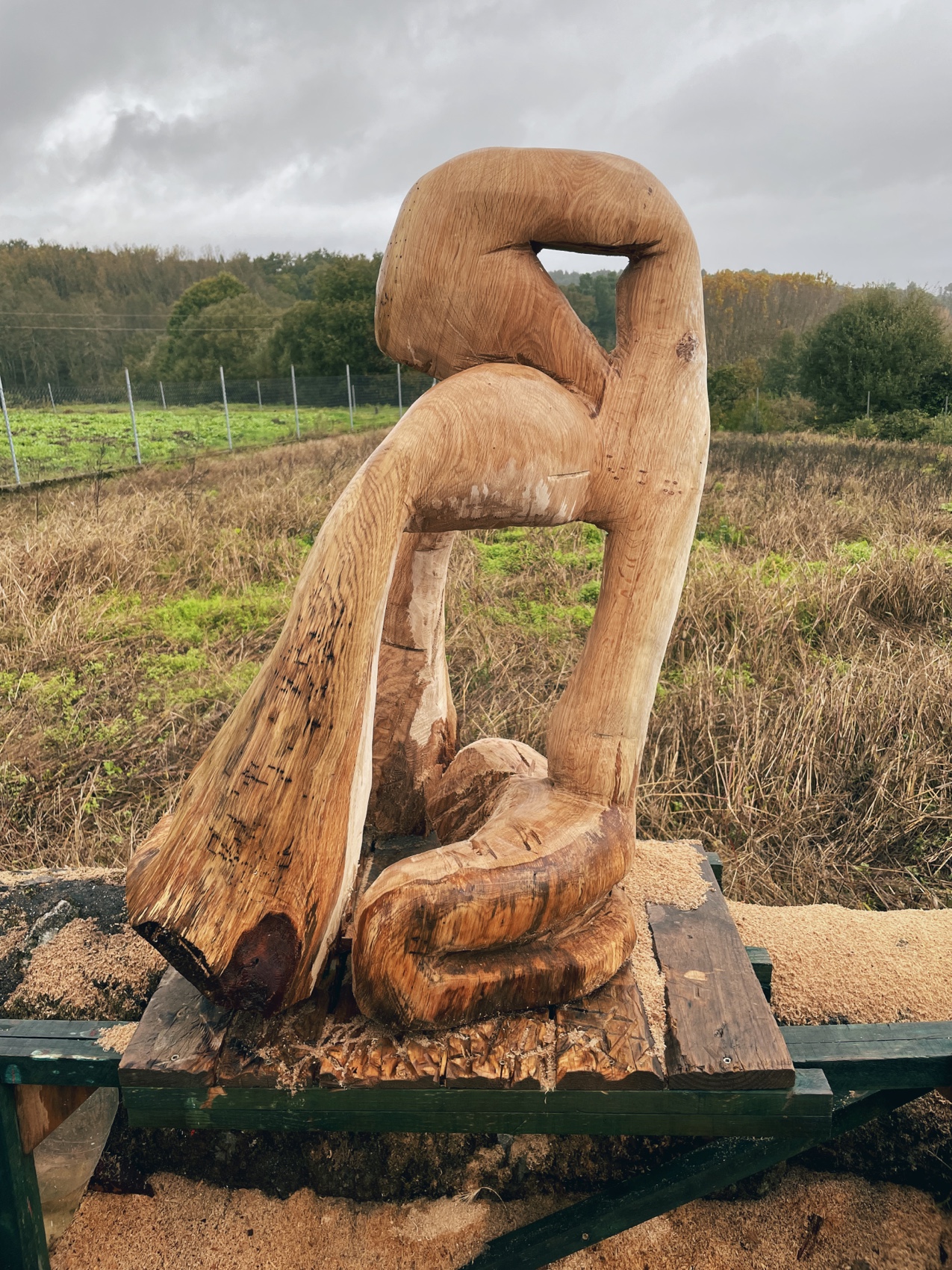
Local artist Jesús Benavides carved this self-representation of what living with MS feels like.
I think it belongs in a museum. He responded, “It’s already there, in my street museum.”
Sacral philomath in unruly reverence

Local artist Jesús Benavides carved this self-representation of what living with MS feels like.
I think it belongs in a museum. He responded, “It’s already there, in my street museum.”


This bit in The Paris Review’s interview with Hernan Diaz is really interesting:
Interviewer: How did you balance that freedom from referential anchorage with the need to accurately represent the setting?
Diaz: My effort at all moments was to be inconspicuously accurate. I would always take believable over precise. And I tried very hard to make the novel not feel researched, a word I distrust when applied to literature. It’s awful when a novel feels googled—I didn’t want to know the exact name of the exact spur someone would have worn in Nevada in 1869. My intention was to convey a sense of pastness without fetishizing that past. I didn’t want to use props as magical objects that by merely being mentioned would summon the past into the present.
Hernan Diaz wrote a western novel about a Swedish immigrant in nineteenth-century Nevada heading east who does not speak English called In the Distance. While he purposely did not research certain aspects of his novel and relied more on feeling, he does have thoughts and reasons on subverting the western genre and it’s fascinating.
En la tierra
de los mil poetas
escogí perderme,
acabe encontrándote.La tinta auguró nuestra historia
las dunas de tornaron olas,
cordilleras en tu espalda
e infinitud de estrellas.Sigo a tu lado,
me enseñaste a ver el mismo cielo
aún estando preso,
perdido en mitad de la ciudad
y el horizonte tornado de deseo.En la tierra de los míl poetas
nos descubrimos infinitos,
libres de sed,
huérfanos de nubes,
ahijados del oasis
y del futuro.Esta ciudad, es a veces,
un desierto más profundo
que el corazón,
suerte que llevo las alforjas
y en el puño, la ilusión
de que ya nada es finito.
— Pablo Urizal, Madrid